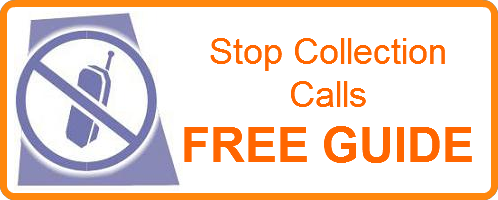If you receive a wage garnishment, knowing your rights may save you hundreds of dollars!
you hundreds of dollars!
It is a common misconception that a creditor can automatically garnish your wages if you fail to pay your debts!
If a debt collector is unsuccessful in collecting for unpaid debts, they may decide to file a claim in your local county court.
You would receive a SUMMONS, which is usually hand delivered to you.
The summons basically states that you have 20-30 days (varies by state) to "answer" the claim. An answer is what you would do if you disputed the claim. To file an answer will usually cost you a court fee and is a waste of time and money if you owe the debt.
If you do not contact the collector and arrange a repayment plan, usually called a STIPULATED AGREEMENT, then a court date is set and the creditor or PLAINTIFF will be awarded a DEFAULT JUDGEMENT.
In other words, the creditor wins the judgment by default because there was no reason for you to contest the claim since you owe the debt.
So now that the creditor has the judgment, what can the creditor do?
If you have a job and earn normal, W-2 income, your creditor can apply for a WRIT OF GARNISHMENT. This will be sent to your employer and the employer has no choice but to comply with the WRIT.
DON'T PANIC! There are several sources of income that are exempt from garnishment:
If you receive any of the following types of income, they are exempt from wage garnishment:
- Social Security benefits
- Supplemental Security Income (SSI)
- Welfare or public assistance
- Spousal support or child support
- Public or private pensions
- Veterans benefits and/or loans
- Disability proceeds of life insurance policies
- Cash surrender value of life insurance policies
- and many others
For a complete listing see Oregon Garnishment Forms.
If you are working, only a certain amount of your W-2 income can be garnished. Here's an example:Let's say you earn $15 per hour and work 40 hours per week.
1. Gross wages for this period (example 2 weeks):$15 x 80 hours = $1200
2. Total deductions withheld by law $ 360
3. Net Disposable Wage (2-1) $ 840
4. Normal exemption (OR 75% of line 3) $ 630
5. Minimum exemption (OR $435 for 2 wks) $ 435
6. Greater of line 4 or 5 = exempt wages $ 630
7. Nonexempt wages (6-3) $ 210
In this example, $210 would be withheld from your BI-Weekly check to satisfy the garnishment until the entire amount of the debt is repaid!
In Oregon (and every other state has similar exemptions), you can use the WAGE EXEMPTIONS CALCULATION WORKSHEET to determine how much can be garnished.If you are SELF EMPLOYED, receiving 1099 or commission income, is is unlikely that an attempt of wage garnishment by a collector will be successful.
Click below for FREE INFORMATION
How to Eliminate Your Debt for Less



 Have you heard of Credit Card Skimming? No? Well, neither had I until today and yet I was a victim of it several months ago. I've often wondered how someone was able to clone my card and go on a shopping spree at the Home Depot. Today I finally got my questions answered.
Have you heard of Credit Card Skimming? No? Well, neither had I until today and yet I was a victim of it several months ago. I've often wondered how someone was able to clone my card and go on a shopping spree at the Home Depot. Today I finally got my questions answered. 

 long before you are contacted by debt collectors!
long before you are contacted by debt collectors!

 What is debt snowball?
What is debt snowball? 











